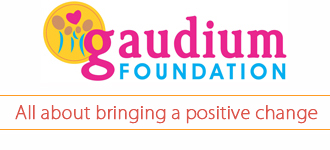New Delhi: The most important things in the world are good health and human life. As responsible citizens, we must not only be aware of the importance of good health, but should also spread this awareness among the lower strata of the society and to all those who are oblivious to it. This is especially with regards to prevention of some fatal diseases which still are a concern and a cause of worry around the world. The need to spread this awareness also significantly increases the responsibility of the media, towards reaching out to the rural sector and cautioning people there. Realising the importance of the role played by the media, UNICEF had organized a three day training workshop at Hotel Taj Vivanta, in Surajkund, Faridaba, with the agenda of training and guiding health journalists.
Some of the main reasons of concern, associated with health, across the world include need for immunization, the role of vaccines for infectious diseases and the subsequent suspicions and doubts that come along with it, regarding the safety of the vaccines, the complications that come with teenage pregnancies, including risks to the mother and the child, and such other health issues. These certainly are a matter of concern and need to be addressed and resolved at the earliest. It is imperative to reach out to people and provide them with the right kind of information, to differentiate right from wrong, to realize the difference between myths created out of fear and suspicion and the reality. People need to know that myths tarnish the true picture.
How can the media change the picture?
Many a times, the media is challenged with covering some significantly disastrous events, and what is essential then is that the media should be fully equipped with all the information in that regard. There have been many instances of rumours and negative campaigning against some vital vaccines and immunization drives. It is in such cases that the media needs to fulfill its obligation of digging out the truth, disparaging the rumours and the mis-informants and providing the right information to the masses. It is also its duty to not be tempted to be party to such rabblerousing, if it considers itself to be accountable and responsible towards the society. This consciousness on the media’s part can prevent a lot of negativity that goes around many important health issues. The workshop organized by UNICEF, discussed many of these concerns practically, in depth. Many newspaper reports were considered and many such instances were discussed highlighting how important the role played by the media can be. Journalists attending the workshop said they are willing to take cognizance of the situation and shall be adopting a code of conduct to tackle such situations. They agreed that any form of health related news should only be written and published once it’s been verified and cross-checked by a number of reliable sources.
The importance of breast-feeding
Apart from the concerns related to neonatal health care and the health of the mother during and post pregnancy, the importance of breastfeeding was also discussed at length in the workshop. Many pertinent questions were raised in this regard, like why should water not be given to a new born during the first six months? Why should mother’s milk be given to the infant within the very first hour of his birth and how is it beneficial for both the mother and the child? What do researches and surveys say on this aspect? The discourse on India’s birth rate was a natural outcome of the discussion stated above. What is worrisome is that India still lags far behind in mother and child health care in Asia, as compared to our neighbouring countries, which are at a much better position than us. However, it is important to acknowledge that ever since child marriage has been made an offence in India, there has been a noticeable improvement in terms of nutrition and health care facilities for women. Although the gap is still wide and needs to be bridged at the earliest.
A healthy world by 2030, envisaged by UNICEF
In 2015, UNICEF took upon itself the initiative of working towards the ‘Sustainable Development Goal’ or SDG, for a better and healthier world. The agenda behind this programme is to achieve this goal by the year 2030. The question that arises is, how is this going to be achieved, given that UNICFE had also implemented schemes like the ‘Millennium Development Goal’ (MDG) before, but could not meet the expectations as it had designed. But going by the practicality and creative potential with which UNICEF has embarked upon achieving the target set under SDG, it seems safe to envisage a healthier world by the year 2030.
What is the Super Bug?
During the workshop, while antibiotics and their effects were discussed, what was also much talked about was the Super Bug. At the same time, there were doubts raised on those reports which have claimed that the Super Bug was discovered for the first time in the Indian hospitals, considering that the news about this antibiotic resistant bacteria was first covered by the media in the US and other western countries. However their reports were not taken into account despite bona fide and standard sources. It was also discussed in the workshop that the concept of super bug is not new and has been doing the rounds for quite some time now.
During the workshop, Roxton Martin of Thompson Reuters Foundation, Sonia Sarkar, Communication Officer (Media) UNICEF, super trainers Pramod Joshi, Sanjay Abhigyan, Arti Dhar, and Muzaffar Husain Ghazali addressed the event, guided and trained the attending journalists, and imparted information to them about public health and the various challenges associated with it. This workshop was attended by a number of journalists and academicians from the field of Urdu, Hindi and English.
